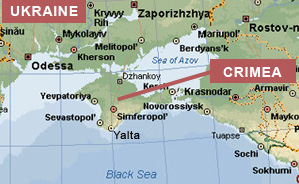There has been a steady stream of complaints regarding the failure to act on the part of President Obama. I happen to think Barack Obama is a gifted speaker, a brilliant man, and capable of achieving great things for the country he loves. Unlike other statesmen, who dazzle us with personality and panache, President Obama isn’t in it for the glory. He has a job to do, and he has to work with and work around a great many people and forces. What I have always admired about him as leader is that he carefully considers his actions, regardless of what the press or even the people may say. Fools rush in. The world is very fortunate that the man at the helm of the most powerful nation in the world is no fool.
On Wednesday, President Obama delivered his address on US – European relations. It served as an eloquent declaration of action to both Putin and the world. I was fortunate enough to hear the speech delivered live. If you missed it, here is a link to the full transcript in the Washington Post: http://www.washingtonpost.com/world/transcript-president-obama-gives-speech-addressing-europe-russia-on-march-26/2014/03/26/07ae80ae-b503-11e3-b899-20667de76985_story.html.
The speech begins with an easy but relevant history of how the ideals of democracy were born in Europe and carried to America and around the world. Then, the spectre of Putin’s aggression is first addressed.
“But those ideals have also been tested, here in Europe and around the world. Those ideals have often been threatened by an older, more traditional view of power. This alternative vision argues that ordinary men and women are too small-minded to govern their own affairs, that order and progress can only come when individuals surrender their rights to an all-powerful sovereign.”
He goes on to describe the formation of NATO by the alliance of America with Europe “to reject the darker forces of the past and build a new architecture of peace,” and how this stood in stark contrast to the oppressive control wielded by the Soviet Union. A subtle prelude to what he will say regarding Putin.
He then delivers a rousing acknowledgement of how many nations achieved democracy and freedom across the twentieth century, reminding the audience that this generation knows an unprecedented level of freedom and prosperity. Then, he sounds the first warning bell:
“So I come here today to insist that we must never take for granted the progress that has been won here in Europe and advanced around the world, because the contest of ideas continues for your generation. And that’s what’s at stake in Ukraine today. Russia’s leadership is challenging truths that only a few weeks ago seemed self-evident, that in the 21st century, the borders of Europe cannot be redrawn with force, that international law matters, that people and nations can make their own decisions about their future.”
He states directly that the US will not be complacent, that the US believes in the freedom of nations, democracy and human dignity. He reminds the audience of the United Nations, the Universal Declaration of Human Rights and international law, and how we must all work together to enforce them. He accuses Russia of violating international law and stresses the action against the Ukraine must be met with condemnation. He establishes how Russia has been isolated politically, suspended from the G-8 group of nations, and has been penalized with sanctions. And then how the Ukraine will be offered major financial aid packages and other supports.
The take-away line of the speech was this: “this is not another cold war that we’re entering into.” President Obama is careful to establish history will not be repeating itself. There won’t be a division of nations along those lines again. And then he draws the line in the sand stating:
“What we will do always is uphold our solemn obligation, our Article 5 duty, to defend the sovereignty and territorial integrity of our allies. And in that promise we will never waver. NATO nations never stand alone.
To back this up, he points out that NATO planes fly the skies in the Baltics and that they have reinforced their presence in Poland. And that they will do more. However he doesn’t say what. Rather, he calls upon NATO members to step and do more.
So what does that mean for Ukraine? I think this statement sums it up:
“Of course Ukraine is not a member of NATO, in part because of its close and complex history with Russia. Nor will Russia be dislodged from Crimea or deterred from further escalation by military force.”
Mr. Obama knows, as we all should, that the crisis in the Ukraine will not be resolved by foreign parties marching in. And, as has become apparent, Putin does not care about sanctions or being part of any international collective other than his own. So, as the speech moves to its end, Mr. Obama tries a different tact, and like a parent to their wayward child, appeals to Russia to rejoin them, that the world is a stronger, better place with Russia working alongside them. The speech then finishes with more wonderfully worded encouragement and defence of ideals we all hold dear.
If this were a war of words, then hands down the US would have won. Unfortunately, it isn’t, and Putin has not been deterred by what anyone has had to say. For him, this game has only begun, and he will not back down. President Obama should be ready to toss those gloves off and to make good on his commitment to defend fellow NATO nations.








